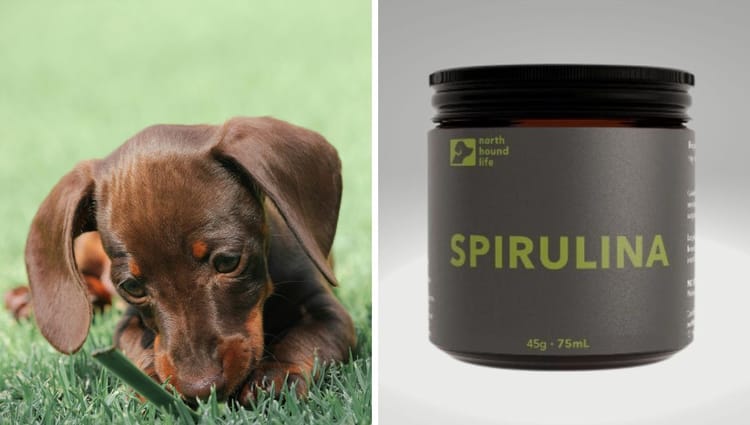Can Dogs Eat Celery? A Guide to Your Dog's Diet

Celery is a common vegetable found in many kitchens, but when it comes to our furry friends, what's healthy for humans isn't always safe for dogs. As a pet owner, it's crucial to understand what foods are safe for your dog to consume. This article will delve into the question: Can dogs eat celery?
Key Takeaways:
- Celery is generally safe for dogs to eat in moderation.
- It provides several health benefits but also has potential risks.
- Always consult with a veterinarian before introducing new foods into your dog's diet.
What Is Celery and Its Nutritional Profile?
Celery is a low-calorie vegetable that's high in water content and packed with various vitamins and minerals. It's a good source of vitamins A, K, and C, as well as minerals like potassium and folate. For humans, it's a crunchy, hydrating snack, but what does this mean for dogs?
When considering celery for dogs, it's important to note that while the vegetable is not toxic, its nutritional benefits should be weighed against a dog's specific dietary needs. Dogs require a balanced diet tailored to their species, and while celery can be a part of this, it should not be a staple.
Can Dogs Safely Eat Celery?
Yes, dogs can safely eat celery, but as with any treat, it should be given in moderation. Celery's high fibre content can be beneficial for a dog's digestion, but too much can cause gastrointestinal upset. Additionally, the crunchy texture of celery can be good for a dog's teeth, helping to scrape away plaque and tartar.
However, it's essential to cut celery into bite-sized pieces to prevent choking hazards. Always introduce new foods gradually to monitor for any adverse reactions, such as allergies or sensitivities.
Health Benefits of Celery for Dogs
Celery can offer several health benefits for dogs. Its high water content can help keep them hydrated, especially on hot days or for dogs that are reluctant to drink enough water. The vitamins in celery can support a healthy immune system and improve skin and coat health.
Moreover, celery is low in fat and cholesterol, making it an excellent snack for dogs on a weight management plan. The antioxidants present in celery can also help combat free radicals, potentially reducing the risk of chronic diseases.
Potential Risks of Feeding Celery to Dogs
While celery is safe for dogs, there are potential risks to consider. The strings in celery can be difficult for dogs to digest and may cause intestinal blockages if consumed in large amounts. It's advisable to remove these strings before offering celery to your dog.
Additionally, some dogs may be allergic to celery. If you notice signs of an allergic reaction, such as itching, swelling, or difficulty breathing, stop feeding celery to your dog immediately and consult your veterinarian.
How to Serve Celery to Your Dog
If you decide to feed your dog celery, it should be washed thoroughly to remove any pesticides or contaminants. Cut the celery into small, manageable pieces to prevent choking and serve it plain, without any added salt, spices, or dressings.
Celery can be served raw for a crunchy treat or steamed to soften it, which may be easier for some dogs to eat. Never feed your dog cooked celery that's been prepared with onions, garlic, or any other ingredients that are harmful to dogs.
Moderation Is Key
As with any treat, celery should only make up a small portion of your dog's diet. Treats, including vegetables like celery, should not exceed 10% of a dog's daily caloric intake. The rest of their diet should consist of high-quality dog food that meets all their nutritional requirements.
If you're unsure about how much celery to feed your dog, consult with your veterinarian. They can provide guidance based on your dog's size, breed, age, and overall health.
What Other Vegetables Can Dogs Eat?
In addition to celery, several other vegetables are safe for dogs to eat. Carrots, green beans, and cucumbers are all healthy options that can provide variety in your dog's diet. These vegetables should also be served in moderation and prepared without harmful additives.
Always research or consult with a veterinarian before introducing new vegetables to ensure they are safe for your dog.
When to Avoid Celery in a Dog's Diet
There are certain situations where celery should be avoided in a dog's diet. Dogs with a history of urinary tract stones may need to steer clear of celery due to its oxalate content. Additionally, dogs with kidney issues may require a special diet that limits the intake of certain minerals found in celery.
If your dog has any pre-existing health conditions, always check with your veterinarian before adding celery or any new food to their diet.
Consulting Your Veterinarian
Before making any changes to your dog's diet, it's always best to consult with your veterinarian. They can provide personalized advice based on your dog's health history and nutritional needs. Your vet can also help you understand the appropriate portion sizes and frequency for feeding celery as a treat.
Remember, each dog is unique, and what works for one may not be suitable for another. Your veterinarian is your best resource for ensuring your dog's diet is both safe and nutritious.
Summary
Celery can be a healthy snack for dogs when given in moderation. It offers hydration, fiber, and essential vitamins and minerals that can benefit your dog's health. However, it's important to serve celery properly and be aware of potential risks. Always consult with your veterinarian before introducing new foods to your dog's diet to ensure they are appropriate and safe.
FAQ Section
Q: How much celery can I give my dog? A: Treats, including celery, should not make up more than 10% of your dog's daily caloric intake. Start with small pieces and consult your veterinarian for specific recommendations based on your dog's size and dietary needs.
Q: Can celery be harmful to dogs? A: While celery is not toxic to dogs, it can pose risks such as choking or gastrointestinal blockages if not prepared correctly. Always remove the strings and cut celery into small pieces. Watch for allergic reactions and consult your vet if you have concerns.
Q: Are there any dogs that should not eat celery? A: Dogs with a history of urinary tract stones or kidney issues may need to avoid celery. Additionally, dogs with known allergies to celery should not consume it. Consult your veterinarian for advice if your dog has any health conditions.





